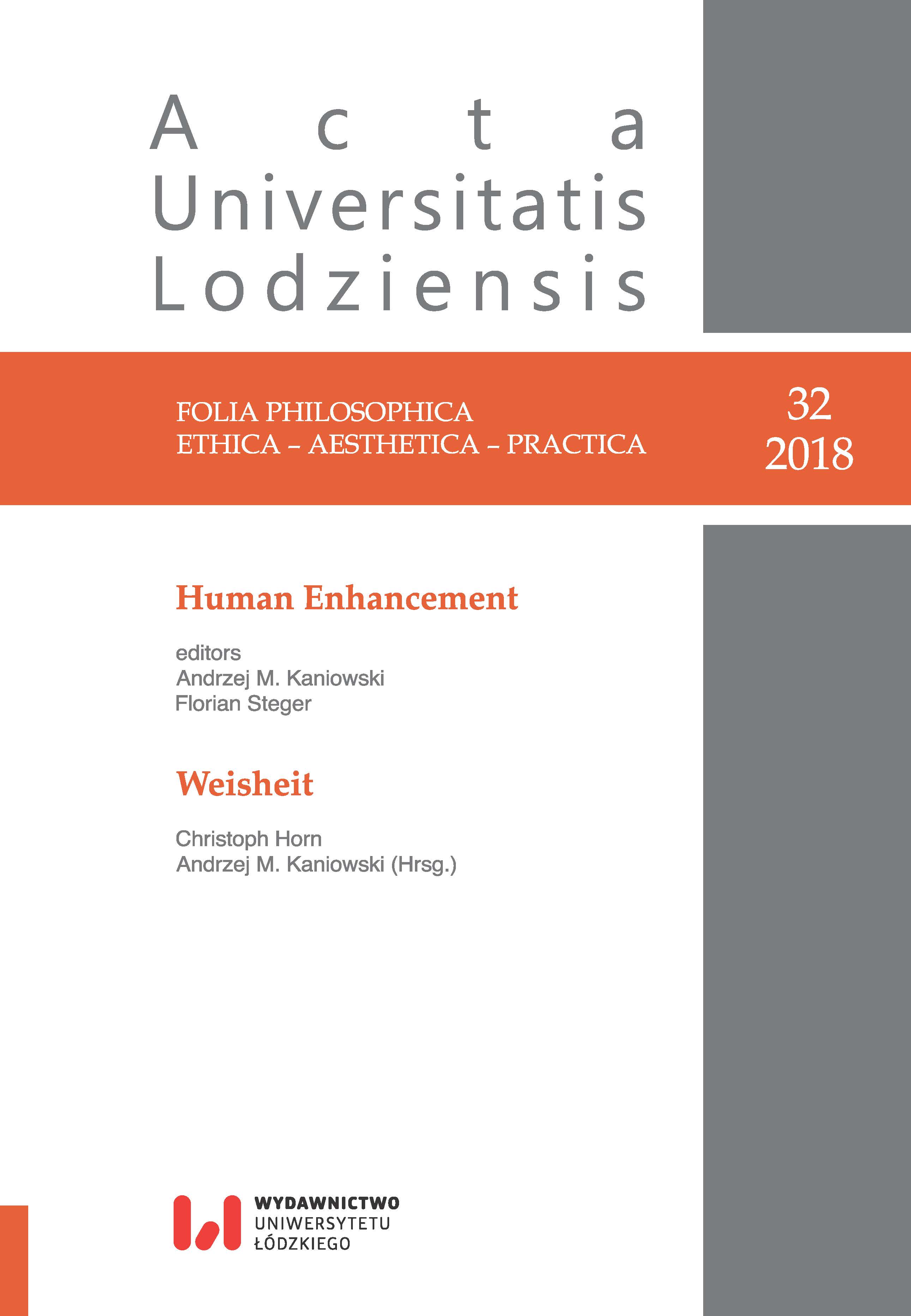What makes decisions wise?
DOI:
https://doi.org/10.18778/0208-6107.32.12Keywords:
wisdom, decision, reasons, valueAbstract
It is methodologically easier to gain access to the concept of wise decisions than to the general concept of wisdom. Once we know what wise decisions are, the corresponding properties and abilities of the deciding person can be inferred. This paper will show that the analysis of wise decisions must not be restricted to the attributive reading of “S makes a wise decision”, but must be extended to the adverbial reading of “S decides wisely”. The externalistic perspective of the former reading exposes a necessary qualitative requirement (a long-range improvement of the situation for all parties involved) which must be met by the outcome of any wise decision. Only the internalistic perspective of the latter reading complies with our intuitions that the outcome must not be achieved by chance, but by the agent’s epistemic abilities such as his competence of judging and reflecting the reasons for the decision. These abilities include in particular the agent’s meta-competence of distinguishing first-order and second-order reasons that pertain not to the value of the object of the decision but rather to the value of the attitude underlying the decision.
References
Cicero. Tusculanae Disputationes III. Hg. von Max Pohlenz. Leipzig: Teubner, 1918
Google Scholar
Crisp Roger. „Review of Kupperman, Value ... and What Follows (by J. Kupperman).” Philosophy 75 (2000): 458–492.
Google Scholar
Glück, Judith. Weisheit. Die fünf Prinzipien des gelingenden Lebens. München: Kösel-Verlag, 2016.
Google Scholar
Heckhausen, Heinz und Gollwitzer, Peter M. „Thought Contents and Cognitive Functioning in Motivational versus Volitional States of Mind.” Motivation and Emotion 11, Nr. 2 (1987), 101–120.
Google Scholar
Hills Alison. „Understanding-why.” Nous 50, Nr. 4 (2015): 1–28.
Google Scholar
Horn, Christoph, Antike Lebenskunst. Glück und Moral von Sokrates bis zu den Neuplatonikern. München: C. H. Beck, 1998.
Google Scholar
Olson, Jonas. „Buck-Passing and the Wrong Kind of Reasons.” The Philosophical Quarterly 54 (2004): 295–300.
Google Scholar
Parfit, Derek. „Rationality and Reasons.” In Exploring Practical Philosophy. Herausgegeben von Dan Egonsson, Jonas Josefsson, Bjorn Petersson, and Toni Rønnow-Rasmussen, 17–39. Aldershot: Ashgate, 2001.
Google Scholar
Persson, Ingmar. „Primary and Secondary Reasons.” In Hommage á Wlodek. Philosophical Papers Dedicated to Wlodek Rabinowicz. Herausgegeben von Toni Ronnow-Rasmussen, Bjorn Petersson, Jonas Josefsson, and Dan Egonsson, Lund: Department of Philosophy, Lund University 2007.
Google Scholar
Rabinowicz, Wlodek und Rønnow-Rasmussen Toni. „The Strike of the Demon: On Fitting Proattitudes and Value.” Ethics 114 (2004): 391–423.
Google Scholar
Ryan, Sharon. „Wisdom, Knowledge and Rationality.” Acta Analytica 27, Nr. 2 (2012): 99–112.
Google Scholar
Schönrich, Gerhard. „Kants Werttheorie? Versuch einer Rekonstruktion.” Kant-Studien 104 (2013): 321–345.
Google Scholar
Speer, Andreas. „Weisheit.” In Historisches Wörterbuch für Philosophie, hg. von Joachim Ritter, Bd. 12. Basel: Schwabe AG 1971.
Google Scholar
Stratton-Lake, Philip. „How to Deal with Evil Demons: Comment on Rabinowicz and Rønnow-Rasmussen.” Ethics 115 (2005): 788–798.
Google Scholar
Downloads
Published
How to Cite
Issue
Section
License

This work is licensed under a Creative Commons Attribution-NonCommercial-NoDerivatives 4.0 International License.












